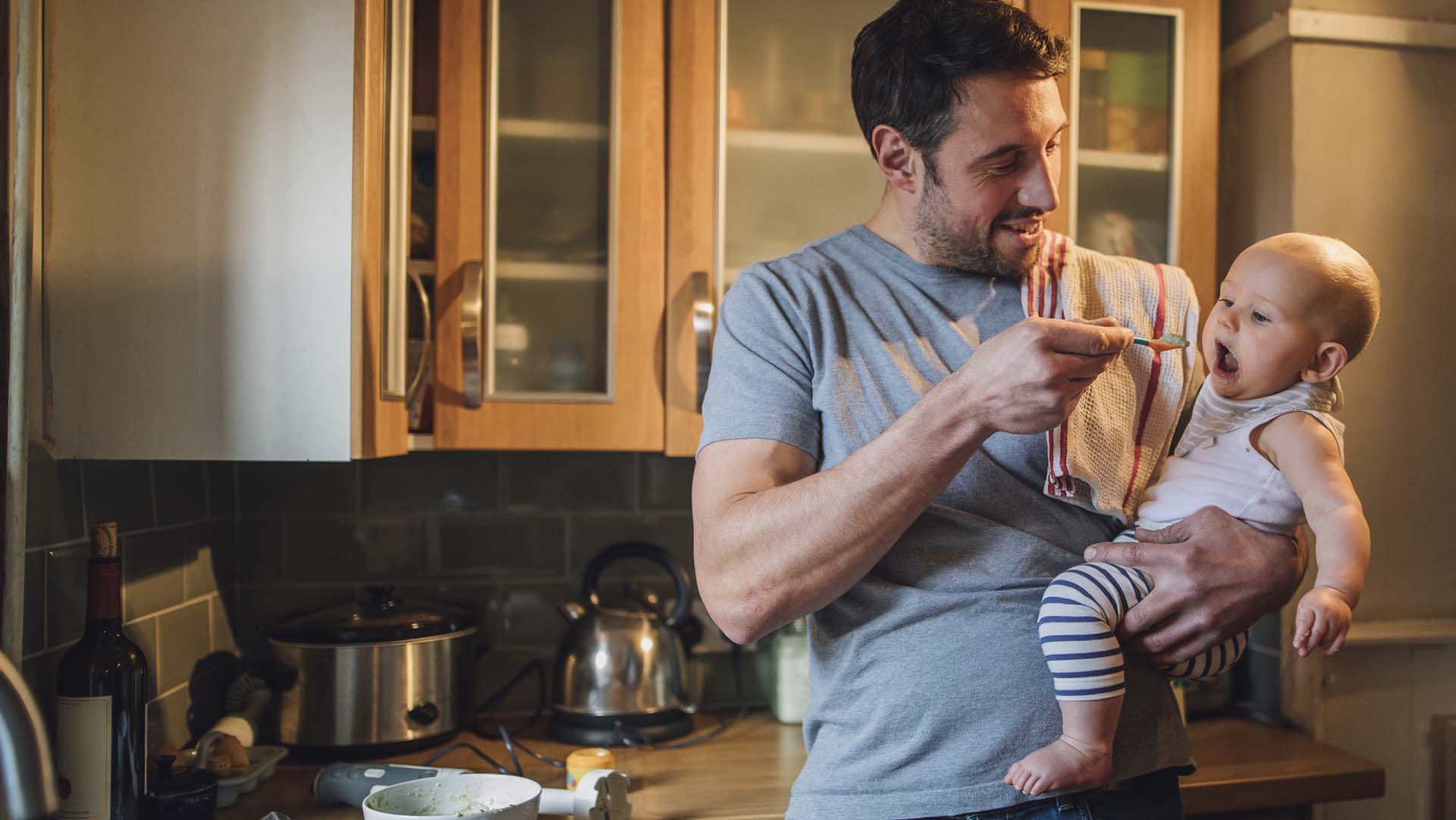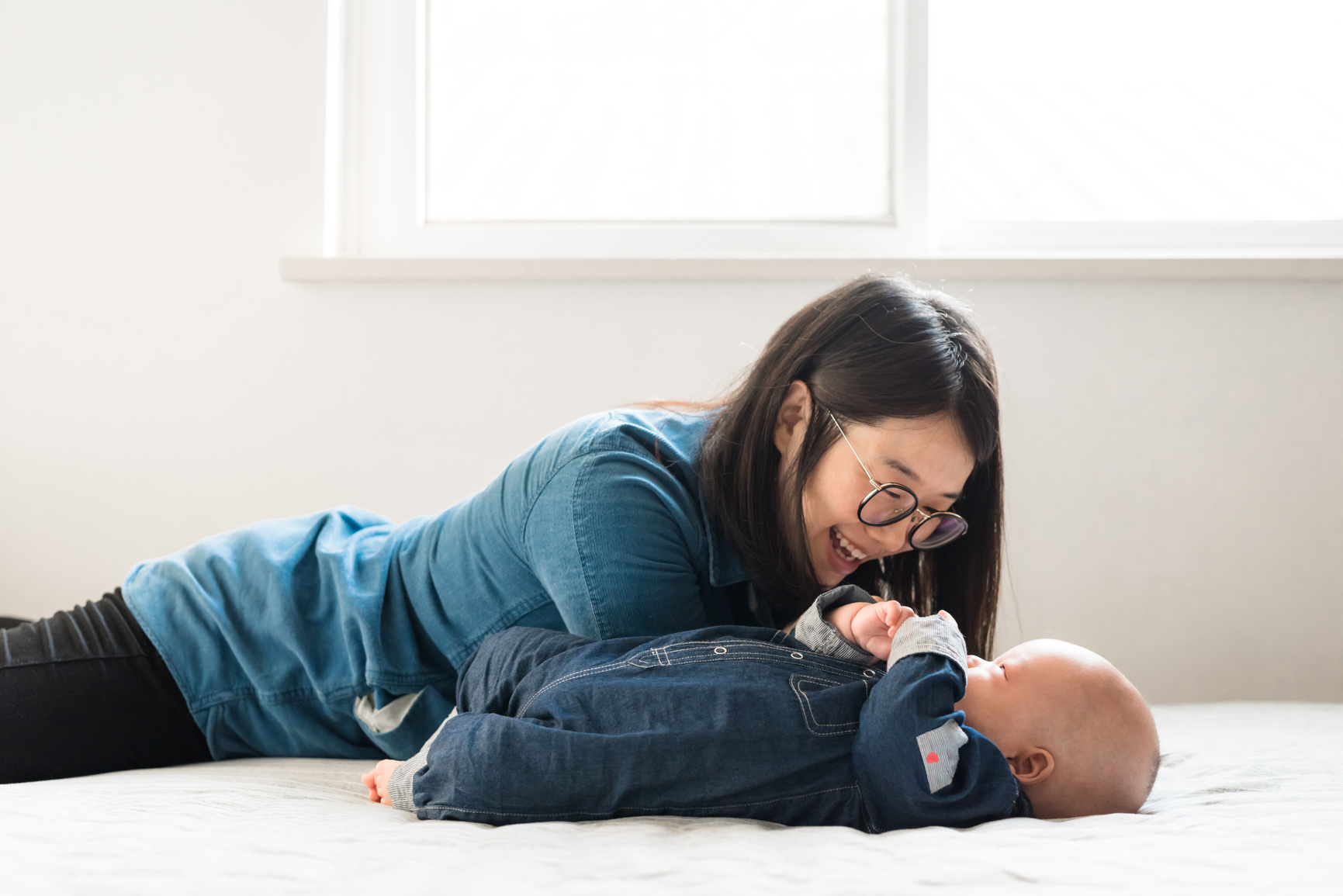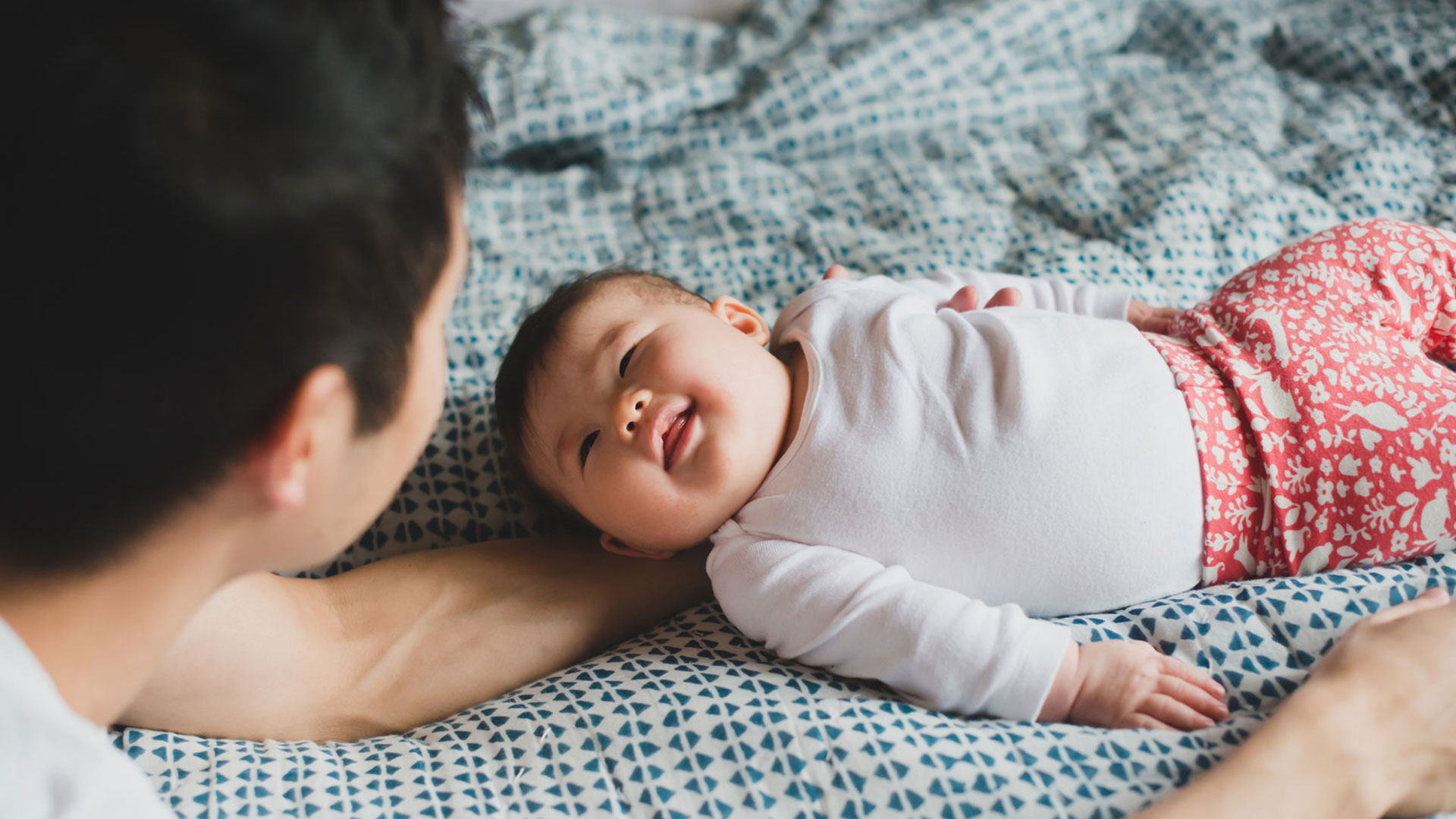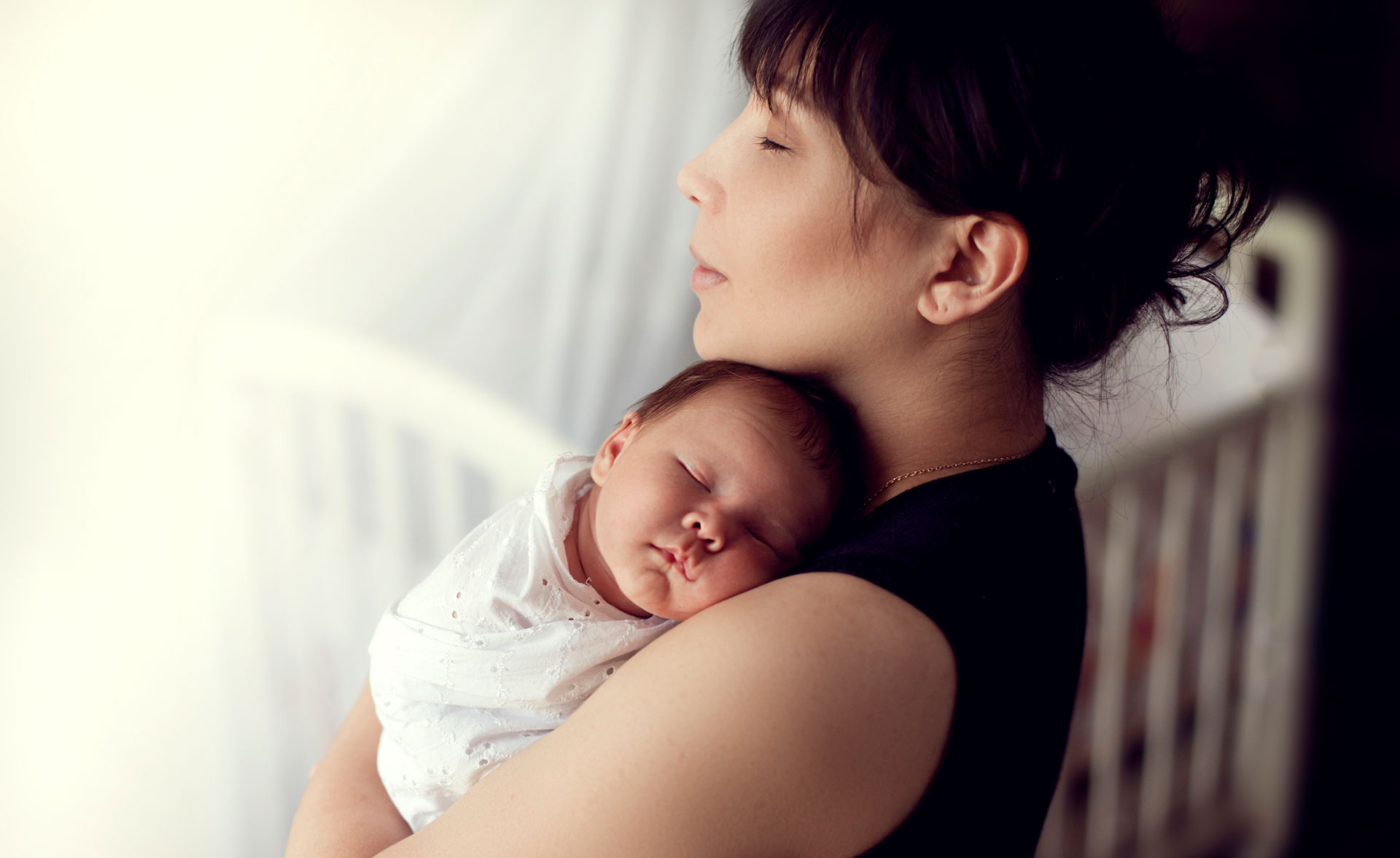-
After birth, a baby’s skin takes a little time to get used to the new world. However, a few simple measures in the home can help a young baby’s skin cope with the change.
Washing your baby’s skin
- Use warm water: Washing your baby’s skin with warm water is all that is necessary most of the time. Soap may dry out the skin.
- Use unperfumed bath oil: A small amount of unperfumed bath oil added to the bath will help to keep the skin soft.
- Limit bubble baths: They remove natural oils from the skin. Antibacterial or perfumed soaps are unnecessary and should also be avoided.
- Dry your baby carefully: Pat dry the skin folds including the armpits, groin, neck and behind the ears after bathing.
- Wash your baby’s skin less in winter: Cold weather and lower humidity makes the skin drier. If the skin is dry, it may require moisturiser to be applied several times a day, especially after bathing. Ointments and creams are usually more effective moisturisers than runny lotions in a pump pack.
Changing your baby’s nappy
It is not necessary to bath your baby daily, provided soiled areas are cleaned regularly. A small amount of moisturiser such as sorbolene or aqueous cream can be used to clean the nappy area.
What to do if your baby has dry skin
If your baby has dry skin, or infantile eczema, it is important to avoid soap completely and use a soap substitute, as well as applying moisturiser to the skin regularly. There has been considerable interest in whether the routine application of moisturisers to the skin of infants may reduce rates of eczema and allergies later on.
Common skin conditions
Because their skin is so new, babies can be prone to a range of conditions. These include eczema, allergic reactions to foods, nappy rash, sucking blisters and a rash around the mouth from dribbling and teething. Some of these conditions will resolve as your baby’s skin matures.
What to do if your baby has eczema (atopic dermatitis)
Eczema is a form of inflammation of the skin, characterised by an itchy, red rash, often causing the skin to be dry and thickened. Areas most commonly affected are joints including the elbows, knees, wrists and ankles, and the face and neck. It is not contagious – that is, it cannot be spread from one person to another.
If your baby has eczema, there are some simple things you can do to help manage it.
- Avoid skin irritants: Soap, detergents and perfumed products dry out the skin.
- Regularly apply moisturisers: Try sorbolene or aqueous cream, generally, the greasier, the better.
- Avoid extremes in temperature: Heat may be an aggravating factor and cause the baby to scratch more at night.
- Use clothing made of natural fibres: Try cotton, or even silk.
Treating eczema may require prescription anti-inflammatory creams or ointments, which your general practitioner or dermatologist can prescribe. Topical corticosteroid creams or ointments are safe for babies and young children and often reduce the duration of a flare up by treating eczema aggressively.
For many, knowing how to manage or control eczema is the key, as there is no complete cure available.
Visit the Skin & Cancer Foundation Inc for more information on common family skin conditions prepared by specialist dermatologists.
Caring for your baby's skin
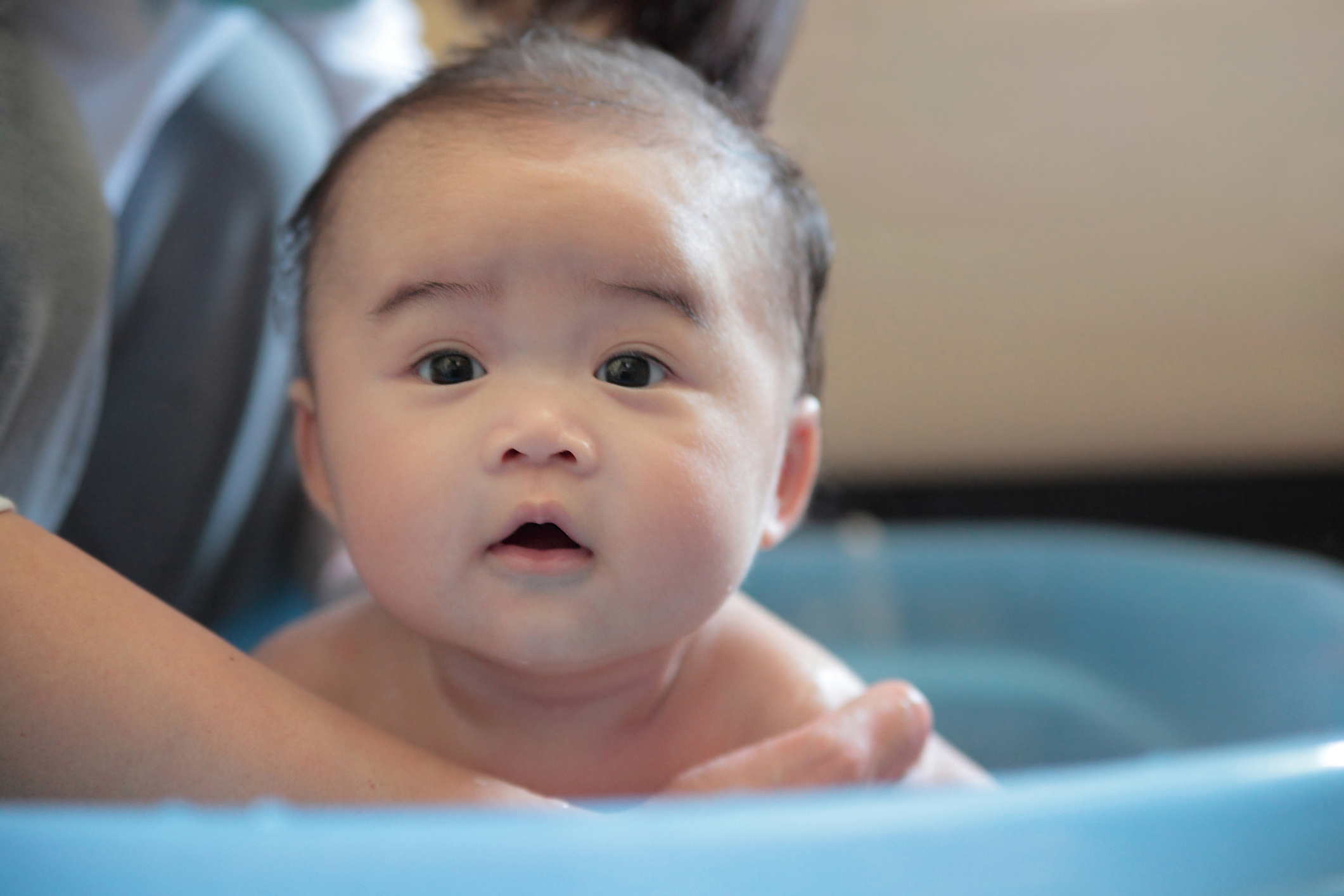
-
How to introduce allergy foods
A guide to weaning and allergies
-
Immunisation 101: everything you need to know
Make sure your baby is fully immunised
-
The partner’s guide to breastfeeding
How you can help with breastfeeding
-
Bringing home a new baby during a pandemic
Bringing home a new baby is an exciting yet challenging time.
-
Your new baby admin checklist
A simple guide to ticking off all the paperwork for your new baby.
-
Getting in a routine with your new baby
Paediatrician Professor Harriet Hiscock shares some advice for adjusting to life with your little one, from feeding to sleeping to checking in with yourself.
Subscribe to receive the best from Live Better every week. Healthy recipes, exercise tips and activities, offers and promotions – everything to help you eat, move and feel better.
By clicking sign up I understand and agree to Medibank's privacy policy

